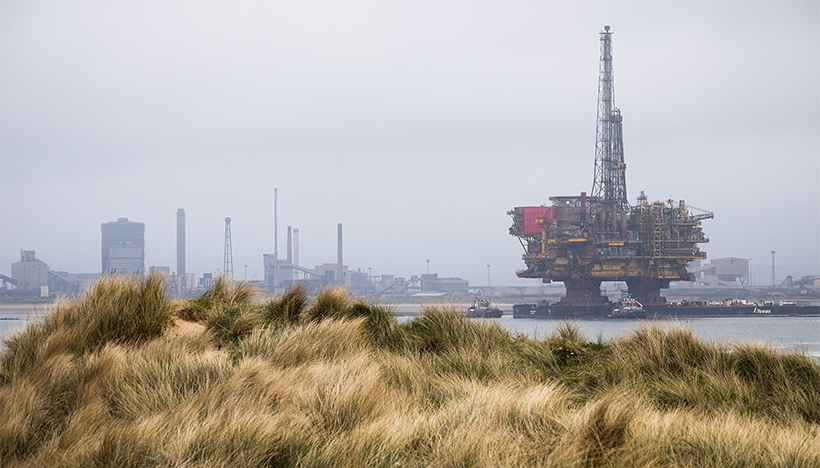In focus UK country profile
Shell has been present in the UK since 1897. During that time, we have played a major role in powering and fuelling the UK’s industry, transport and homes. Our gas plants, pipeline systems and import terminals deliver more than 20% of the UK’s gas supply, including substantial volumes piped from Norway. We also have a network of over 1,000 Shell-branded service stations and run the UK's largest public electric vehicle charging network, providing customers with access to a network of over 10,000 charging points.
Decommissioning and tax
Some of our North Sea fields have reached the end of their life cycle and Shell’s largest decommissioning project is the Brent oil and gas field, which lies in the North Sea between the UK and Norway. Preparation for decommissioning the four Brent platforms – Alpha, Bravo, Charlie and Delta – started in 2006.
We decommissioned Brent Delta in 2017 and Brent Bravo in 2019. In 2020, the Brent Alpha topside, the part of the platform that is visible above the sea, and the upper jacket, which supports the topside, were removed and sent for dismantling and recycling onshore. More than 97% of the Brent Delta topside has been recycled. Brent Charlie ceased production in 2021, and was the last of the four Brent platforms to produce.
Under UK tax law, the deduction for decommissioning costs is available only when the cash associated with decommissioning costs has actually been spent. If large sums of cash are spent on decommissioning in a year when insufficient income is generated by the business, this can result in a tax loss for that year. When this occurs, that loss is used to offset historical tax that has been paid in prior years and this results in a tax refund.
The total taxable profits over the field’s lifetime will be the same as if deductions for decommissioning had been made during the production years. The refunds do not represent any additional subsidy or contribution towards decommissioning costs. The UK government has received more than £20 billion in tax revenues (in today’s money) from the Brent oil and gas field since it started producing in 1976.
In 2021, Shell received a £42 million refund in respect of its Brent decommissioning activities. Decommissioning is due to be completed in 2024.

Contributing to the UK’s net-zero goal
Shell is ready to play a significant role as the UK looks to bolster its energy security and move towards achieving net zero by 2050. In March 2022, Shell unveiled plans to invest £20-25 billion in the UK energy system over the next decade. More than 75% of this is intended for low- and zero-carbon products and services, including offshore wind, hydrogen, carbon capture, utilisation and storage (CCUS), and electric mobility. These investments are subject to Board approval and supporting policy.
Shell supplies electricity to around 1.4 million homes in the UK. At the beginning of 2022, Shell as part of a joint-venture, won bids to develop 5 gigawatts of floating wind power off the coast of Scotland, which could provide enough energy to power the annual equivalent of 6 million homes.
Shell also continues to invest in electric mobility infrastructure to support the UK’s switch to electric vehicles.

Shell seeks to comply with existing UK tax legislation and any future taxes relating to the energy transition that the government may introduce.
UK tax overview
There has been a significant change to the profile of taxes borne by the largest businesses in the UK over the last 15 years. UK revenues have moved away from being mostly dependent on profit-based taxes, such as corporate income tax. The UK increasingly earns revenues from business rates and taxes on property and people, primarily as a result of tax policy changes and economic conditions. The most significant include NIC employer contributions and irrecoverable VAT. Taxes not dependent on profit can provide a more stable source of revenue for governments.
Read more about Shell in the UK in Total tax contribution, in UK environmental taxes in Simplified share structure and the UK country page.
In certain jurisdictions it is often referred to as a Goods and Services Tax (GST) or equivalent. See GST.









